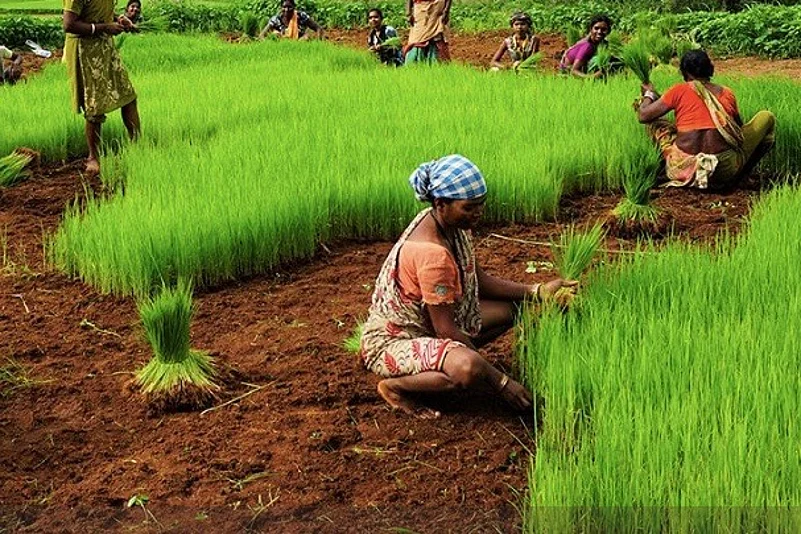While nutrition-sensitive agriculture, with more focus on millets, pulses, vegetables and fruits, can improve nutritional outcomes among the people, but along with that behavior change has to be inculcated as well in order to take forward the Poshan Abhiyaan, an expert said.
Dr. Bhaskar Mittra, Associate Director, Tata-Cornell Institute(TCI) for Agriculture and Nutrition, said Behaviour Change Communication (BCC) has to be brought into the nutrition programme to make an impact.
He said the nutrition intervention programmes with regard to women – pregnant women, lactating mothers and adolescent girls -- needed to be better designed and targeted and the changes measured.
“Their diet needs to be addressed,” said Mittra, at an agri-nutrition conference here.
He also said that with changes in the agricultural practices in India and the emphasis given to paddy and wheat had led to major changes in the food habits of people, especially in urban areas, over the past 50 years. “People are now focusing a lot on fruits, animal products, and non-cereal based diets, which is also leading to overnutrition and obesity in households,” he added.
With the influence of westernization, and the move to non-cereal based diets, many well performing households in India are being seen with cases of over nutrition and obesity among children. One could come across cases of obesity and anemia in the same household, he said, adding that in poorer households the diet is less diverse.
The Tata-Cornell Institute for Agriculture and Nutrition is working on agri-nutrition projects in four districts in Bihar, Odisha and Uttar Pradesh as part of the TARINA project, he added.
The Technical Assistance and Research for Indian Nutrition and Agriculture (TARINA) programme is aimed to fight against malnutrition in India through a nutrition-sensitive food system approach. The programme, which was launched on December 1, 2015 has helped empower thousands of farmers and impacted thousands of families across villages in the three states.
The Tata-Cornell Institute for Agriculture and Nutrition (TCI) was awarded a US$13.4 million grant from the Bill & Melinda Gates Foundation to promote a more nutrition-sensitive food system in India, with focus on availability and affordability of diverse, high-quality and nutrient-rich foods for the rural poor.
In the four districts, TARINA focuses on crop diversification at the farm level and also animal rearing, it focuses on kitchen gardens where the households can grow vegetables and fruits for their daily needs, it focuses on making the agriculture sustainable, and also on the introduction of labour saving technology, especially for women so that they can use the time saved to devote to their children.
Dr Mittra also emphasized on the need to understand the agriculture market.
He said that with change in the cropping patterns, millets, once a staple of every household, had over the past few decades been pushed off the table.
Today there is more diversified set of crops grown, including pulses that were grown in the Indo-Gangetic plain now being grown in even dry areas. Climate change and the resultant flux in temperature was making agriculture risk-prone. With fruits and vegetables prone to disintegration, there was need for infrastructure to move it fast into other markets. Millets also needed to be processed and stored. But one drawback was that post processing, millets have a low shelf life, he added.
According to the National Family Health Survey 4 (NFHS 4), 38.4 percent of children in India are stunted and 21 percent wasted. India remains one of the highest-ranking countries in the world in terms of the number of children suffering from malnutrition.
The Global Hunger Index 2017 placed India at rank 100 out of 118 countries. India has one third of the world's malnourished children.
















